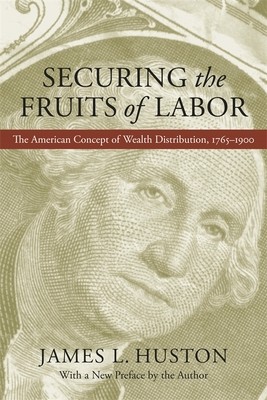
- We will send in 10–14 business days.
- Author: James L Huston
- Publisher: LSU Press
- ISBN-10: 0807160458
- ISBN-13: 9780807160459
- Format: 15.2 x 22.9 x 2.7 cm, softcover
- Language: English
- SAVE -10% with code: EXTRA
Reviews
Description
In his comprehensive study of the economic ideology of the early republic, James L. Huston argues that Americans developed economic attitudes during the Revolutionary period that remained virtually unchanged until the close of the nineteenth century. Viewing Europe's aristocratic system, early Americans believed that the survival of their new republic depended on a fair distribution of wealth, brought about through political and economic equality.
The concepts of wealth distribution formulated in the Revolutionary period informed works on nineteenth-century political economy and shaped the ideology of political parties. Huston reveals how these ideas influenced debates over reform, working-class agitation, political participation, territorial expansion, banking, tariffs, slavery, public land disposition, and corporate industrialism. Securing the Fruits of Labor is a masterful study of American beliefs about wealth distribution over one and a half centuries.EXTRA 10 % discount with code: EXTRA
The promotion ends in 18d.19:16:49
The discount code is valid when purchasing from 10 €. Discounts do not stack.
- Author: James L Huston
- Publisher: LSU Press
- ISBN-10: 0807160458
- ISBN-13: 9780807160459
- Format: 15.2 x 22.9 x 2.7 cm, softcover
- Language: English English
In his comprehensive study of the economic ideology of the early republic, James L. Huston argues that Americans developed economic attitudes during the Revolutionary period that remained virtually unchanged until the close of the nineteenth century. Viewing Europe's aristocratic system, early Americans believed that the survival of their new republic depended on a fair distribution of wealth, brought about through political and economic equality.
The concepts of wealth distribution formulated in the Revolutionary period informed works on nineteenth-century political economy and shaped the ideology of political parties. Huston reveals how these ideas influenced debates over reform, working-class agitation, political participation, territorial expansion, banking, tariffs, slavery, public land disposition, and corporate industrialism. Securing the Fruits of Labor is a masterful study of American beliefs about wealth distribution over one and a half centuries.

Reviews